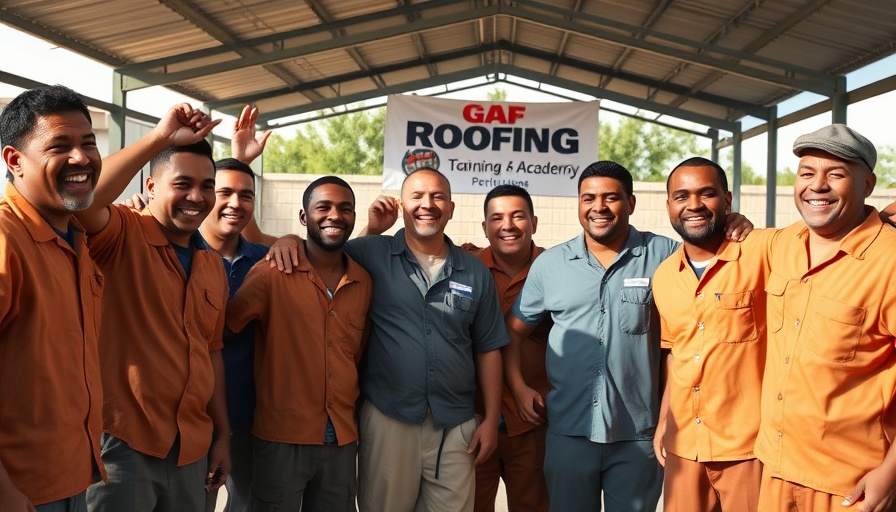
Transforming Lives: The Impact of Roofing Training Programs
The GAF Roofing Academy’s initiative addresses two pressing challenges in today's society: the need for skilled labor in the construction industry and the reintegration of formerly incarcerated individuals into the workforce. By providing a free, weeklong training program in roofing skills, the academy empowers participants, many of whom have experienced the justice system, to secure stable employment. Roderick Colvin, a former inmate and now a senior external learning and development relationship specialist, exemplifies the program’s goal of transparency and transformation.
Bridging the Skills Gap in Construction
As the construction industry grapples with a significant labor shortage, programs like GAF’s serve not only to fill the gap but also to foster a more inclusive workforce. Colvin notes that since its inception in 2020, the GAF Roofing Academy has trained over 4,300 individuals, leading to 2,500 successful job placements. This initiative reflects a growing recognition of the construction sector's need for trained professionals who can contribute meaningfully to the economy.
Understanding the Journey from Incarceration to Employment
For individuals with justice-involvement, navigating the path to employment can be fraught with challenges. The stigma associated with a criminal background often makes it difficult to secure interviews or job offers, even for those who have completed their sentences. This is where GAF's program shines, offering both technical training and soft skills essential for workplace success, such as communication and teamwork. Graduates leave with not only a certificate of completion and OSHA certification but also a renewed sense of purpose.
Fostering Community and Connection
As workforce development becomes increasingly essential, local initiatives like GAF’s contribute to stronger communities. The academy has formed partnerships with commercial roofing firms, enhancing students' chances of employment while simultaneously addressing the industry's urgent hiring needs. This model highlights the importance of collaboration between educational programs and the private sector, ensuring that once trained, individuals like those at GAF have access to the job market.
Moving Towards an Inclusive Future
As the demographic of the construction workforce evolves, it is vital to embrace programs that support diversity and inclusion. By creating pathways for individuals with criminal records, companies not only foster goodwill but also enhance their workforce with motivated and resilient employees. The training offered by GAF exemplifies how businesses can play a pivotal role in societal rehabilitation, thereby benefiting both the economy and the communities they serve.
Inspiration from Real Stories
Colvin’s story is a beacon of hope for many prospective students of the GAF Roofing Academy. His transformation from inmate to industry expert is a testament to the power of second chances. "I’m a living example of what can happen if given the opportunity," Colvin often shares, reinforcing the crucial message that employment is not just about skills but a key part of personal rehabilitation and social reintegration.
Conclusion: A Call to Action for Employers and Community Leaders
As communities seek solutions for labor shortages and heightened unemployment rates among formerly incarcerated individuals, programs like GAF Roofing Academy present an opportunity for broader societal change. Employers, community leaders, and local governments can play an essential role by supporting such initiatives and advocating for sustainable programs that provide training and resources. Investing in skilled labor not only addresses economic needs but also highlights our collective responsibility to foster an inclusive workforce.
 Add Row
Add Row  Add
Add 




Write A Comment